There are two types of development leaders can go through: horizontal development and vertical development.
Horizontal development involves helping leaders add more knowledge, skills, and competencies. The focus of horizontal development is on helping leaders to do more.
Two analogies that help make horizontal development come to life are as follows:
- Adding water to the cup to make it more full or complete
- Adding a new app to an iPad, making it more capable of performing more functions

Vertical development involves helping leaders elevate their thinking capability to better navigate more complex and uncertain environments. The focus of vertical development is on helping leaders to be better.
Two analogies that help make vertical development come to life are as follows:
- Instead of adding water to the cup, we are enhancing the size of the cup
- Instead of adding a new app to an iPad, we are upgrading the iPad to a newer, more capable model

Question: Of these two forms of development, which is most commonly focused on in leadership development efforts and programs?
The vast majority of leadership development focuses exclusively on horizontal development.
Principles of Vertical Development
To understand the key principles of vertical development, it is helpful to understand personal development stages.
Historically, most research on a person’s development has focused on child development. But, the reality is that a person doesn’t necessarily stop developing when they get to be an adult. Research on adult development has found that such development is different than child development in several ways, as indicated in this table:

Children go through more stages (five or more depending upon the researcher) in a relatively short amount of time (approximately 20 years). And, such development, unless impeded by abuse or neglect, largely occurs automatically, requiring little additional effort.
Adults, on the other hand, have the potential to go through fewer stages (the primary theories agree on three stages) over a longer period of time. I say “have the potential to go through” because adult development does not occur automatically. It occurs intentionally and therefore requires more effort.
Levels of Adult Development
Here is one model of adult development:
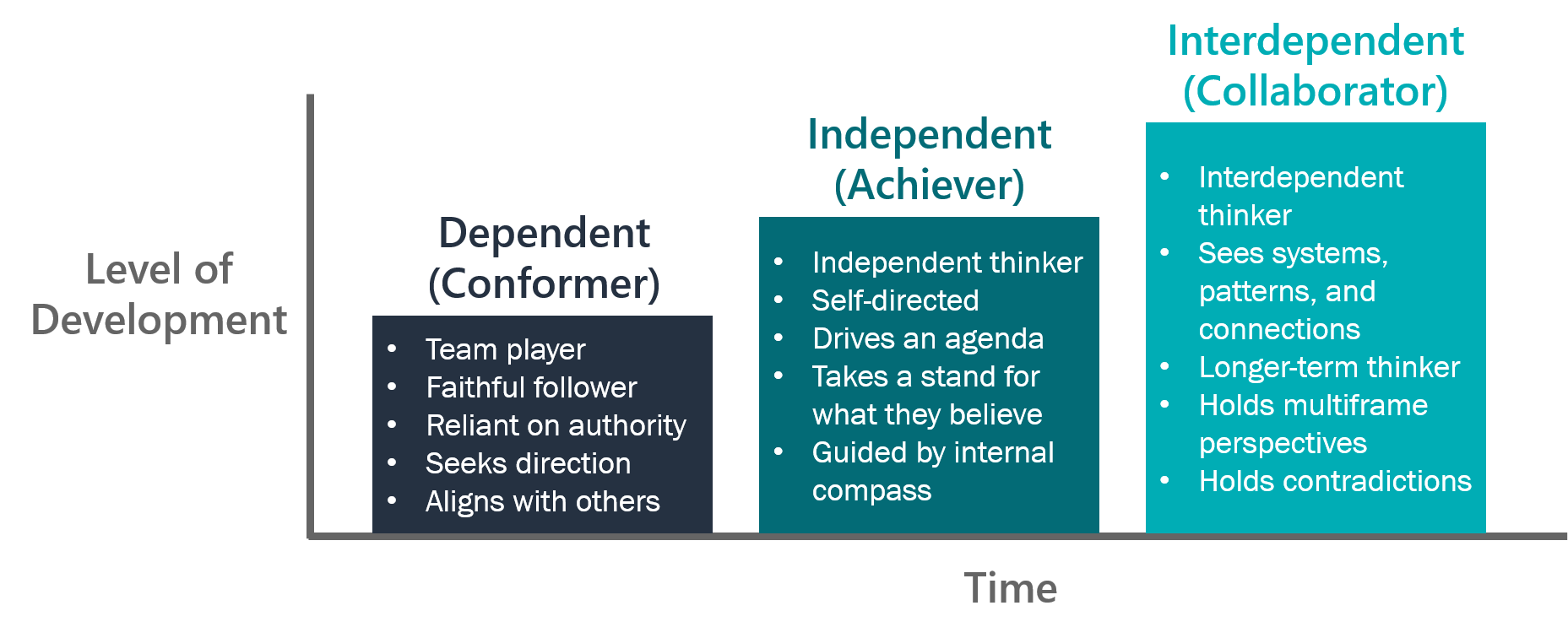
Most agree that nearly all adults get to this first level. Research has found that most managers and leaders get to the second level. But very few adults get to the top level.
What does this say about the worth of a person?
This may make us inclined to believe that someone who is at a higher level of development is of greater worth than someone who is at a lower level of development. We must avoid such thinking.
Here is a quote from the Center for Creative Leadership explaining:
“While it is true that late-stage thinkers are often better matched for leading in complexity, this doesn’t make them better people. My five-year-old can think in more advanced ways than my three-year-old. That doesn’t make him a more valuable human being, just a fraction more developed.”
But, Level of Development Does Affect How One Processes and Operates
The reality is that people on different levels of development see differently, think differently, and behave differently.
Consider a person who was sent to prison for 27 years for conspiring to overthrow the state (e.g., Nelson Mandela). How do you think the person would think and behave at each of these developmental levels, respectively?

At the Dependent level, the person would likely join up with “his people” and continue to fight against those that were oppressing them.
At the Independent level, the person would likely do what was best for himself.
At the Interdependent level, the person might try to restore peace to a broken society and promote forgiveness and unity.
Why is Vertical Development So Important for Leaders?
When two different leaders with different altitudes of vertical development encounter a situation that is low in complexity, both of these leaders are likely to navigate this effectively.
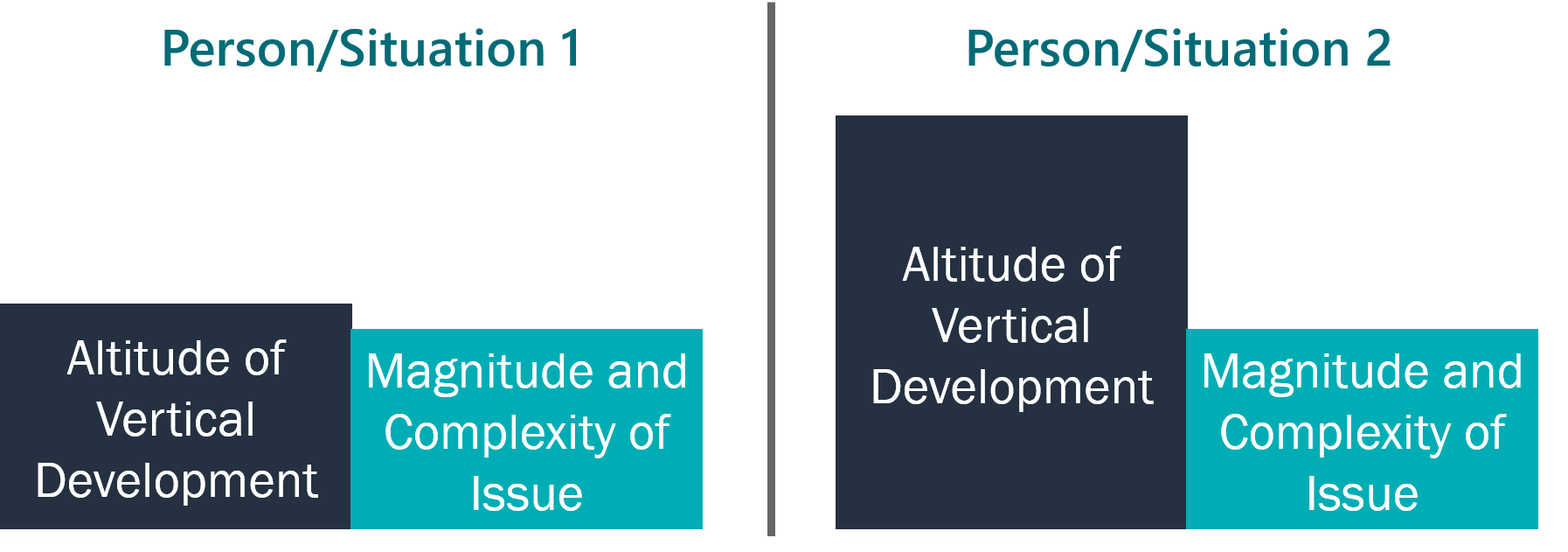
But, if those same leaders encounter a situation that is high in complexity, it is likely that only the one with greater vertical development will be able to handle this effectively.
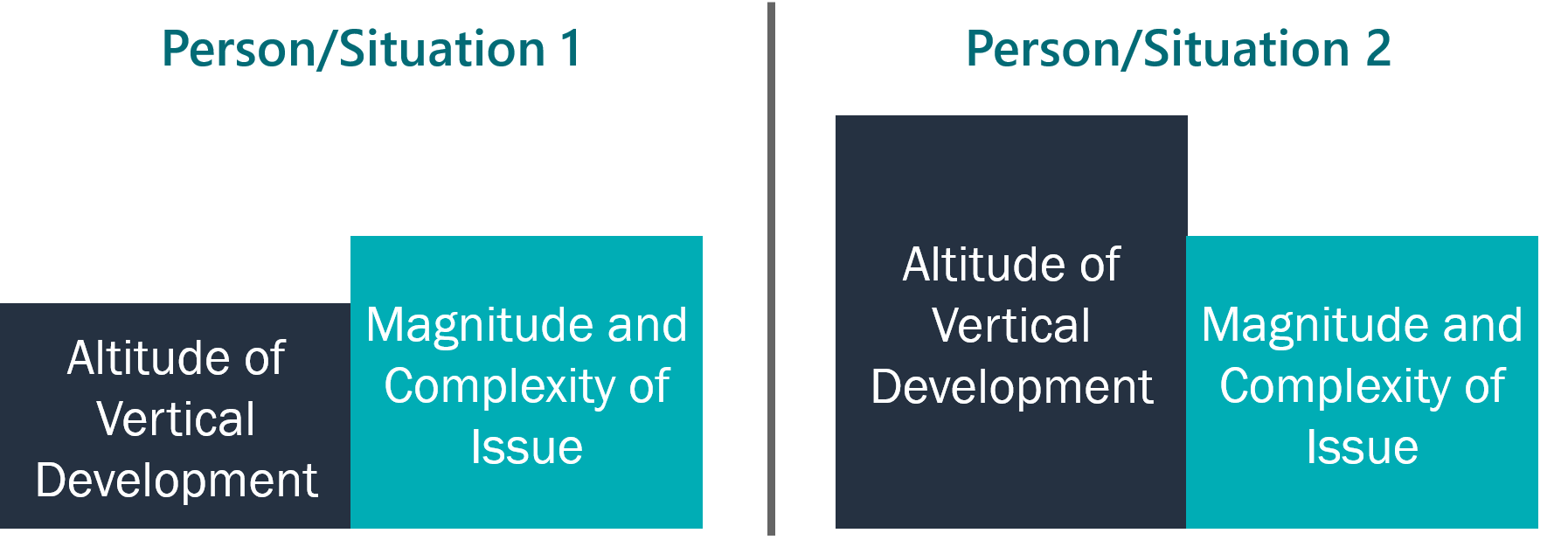
This is critical to understand because leaders are facing increasingly facing more and more complex and uncertain circumstances, something that the COVID-19 pandemic hasn’t helped with.
Quick Vertical Development Self-Assessment
Here are questions that I have come across that might be decent revealers of one’s altitude of vertical development:
- How do you respond to constructive criticism?
- Would you be willing to let someone survey your employees about your effectiveness as a leader?
- Is it bad to build close relationships with those you lead?
- Can you hold competing perspectives on a controversial topic (e.g., abortion)?
- Do you generally focus on the outcomes you want or on the drivers of the outcomes you want?
- When something goes wrong, do you ask yourself: “Who am I being that their eyes are not shining?”
If you have others that you think would be good to add to this list, let me know.
How do we help leaders vertically develop?
To improve leaders’ vertical development, I believe leadership developers need to:
- Help leaders enhance their self-awareness by helping them identify their natural habits, scripts, and tendencies
- Focus on the mind, as it is the foundation for how leaders see, process, and operate
A concept that weaves these two together is mindsets.
Generally, less developed leaders focus on:
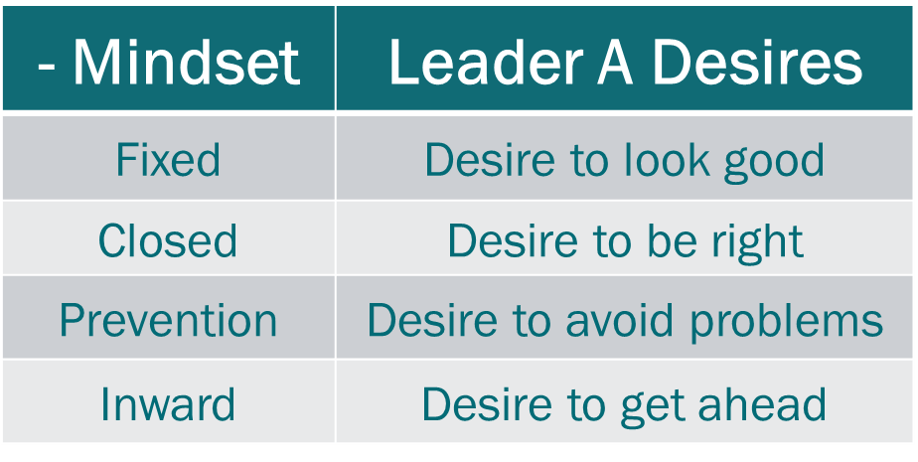
And, more developed leaders focus on:
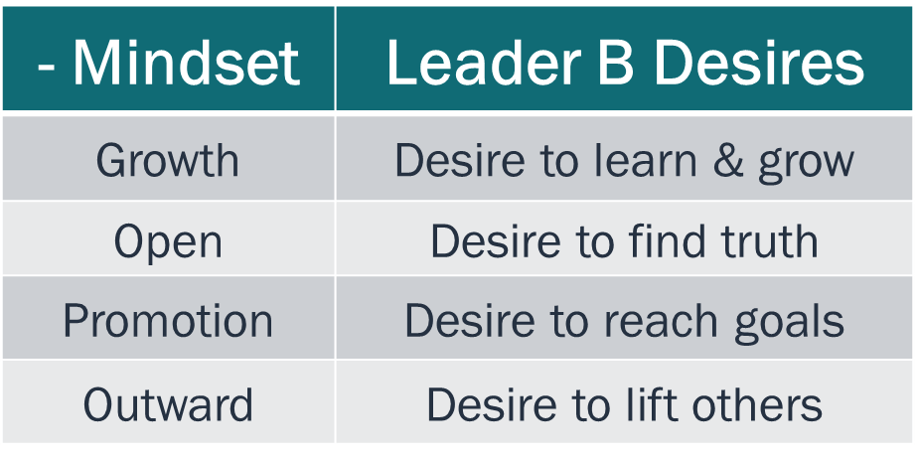
They understand that in order to:
- Learn and grow, they need to put themselves in positions where they might look bad
- Find truth and think optimally, they need to be willing to admit that they have been wrong at times
- Reach goals, they are going to have to wade through problems
- Lift others, they are going to have to be willing to put themselves on the back burner
Each of these things requires a more elevated level of development.
If you want to learn more about how focusing on mindsets helps one deepen his/her self-awareness, check out this article: What You Need to Know about Self-Awareness
If you want to learn more about how mindsets are connected to the mind: check out this article: Mindsets: The Circuit Board of Our Mind
If You Want to Focus More On Vertical Development:
If you want to focus most on vertical development for developing your leaders, I want to help you out. Connect with me by clicking on this hyperlink: Connect with Ryan
Or, you can join me for an upcoming free webinar that I am hosting for organizations that might want to sample how I can help them in the new year. Register here:










